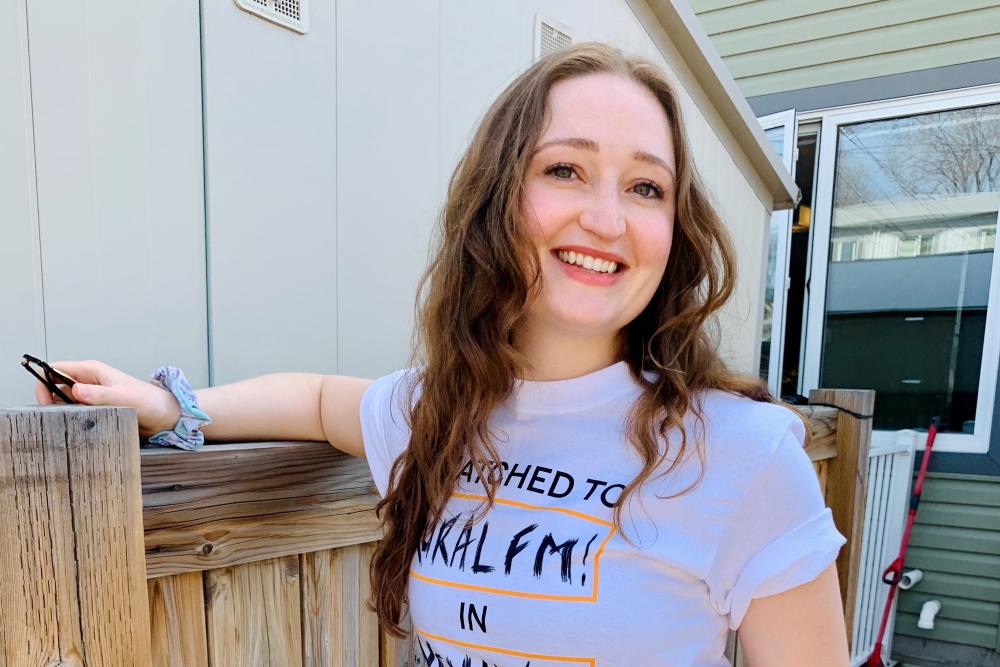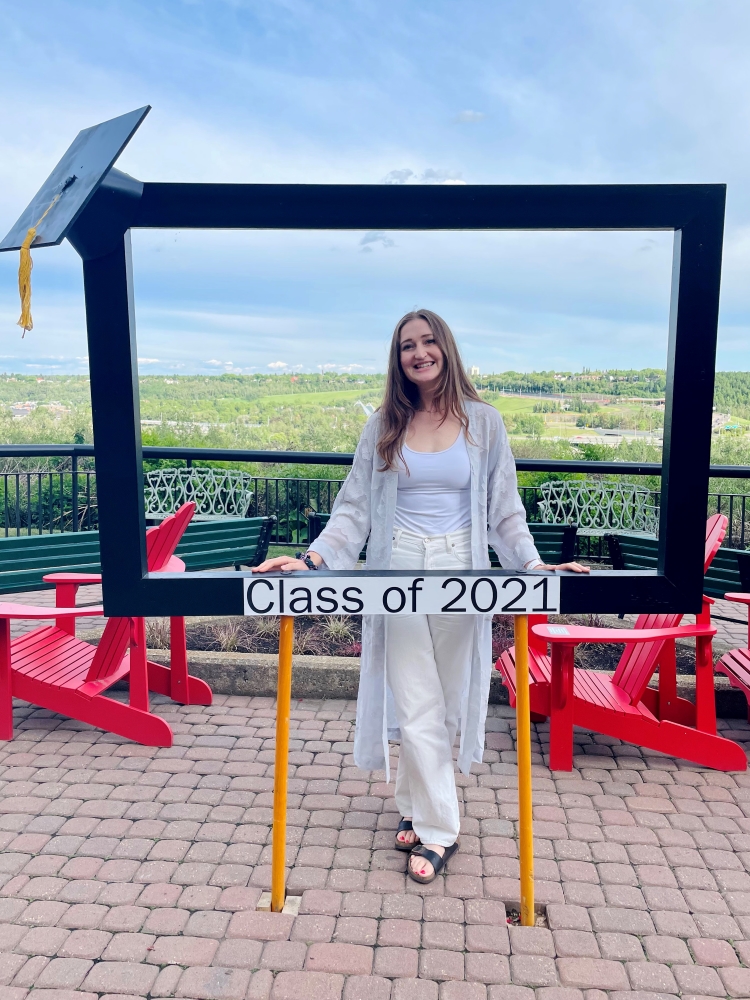Imagining home-grown primary care in Northern Canada
Kirsten Bauer - 24 June 2021

Eleanor Crawford, ‘21 MD has a vision for contributing to a culturally-competent health-care system tailored to meet the needs of northern, rural and remote communities.
Growing up in Iqaluit, Eleanor Crawford, ‘21 MD, says she can’t think of a time when she didn’t want to become her hometown’s doctor.
“I remember all the way back to elementary school, when my teacher told me she was looking forward to the day when I would come back home to be our doctor. So I must have already been talking about going away to study medicine and coming home to practice.”
Crawford first completed a Bachelor of Arts in Neuroscience and Global Health at Middlebury College, Vermont, USA. When she graduated in 2015, she took advantage of the opportunity to hone her professional skills in the United States and worked for two years in a traumatic brain injury lab in Boston, before circling back to her childhood dream, when she was accepted into medical school at the University of Alberta in 2017.
Next year, Crawford is excited to begin her rural family medicine residency in Yellowknife, where she looks forward to learning about medicine in a place that feels closer to the community she came from and will return to. She believes that members of the community are the best equipped to understand a place and care for its people, and her connection to home in the Arctic drives her passion for family medicine.
“In Iqaluit, the population is 60 per cent Inuit and the three languages in the territory include Inuktitut, French, and English, it’s a very culturally rich place. At my school we were solely taught in Inuktitut until grade three. Language can tell you an incredible amount about a culture, and looking back I can see that even as a non-Inuk those lessons and values informed much of how I see the world,” Crawford said.
Becoming a doctor is the work of many hands
Crawford says she didn’t have a mentor in the traditional sense, but that she learned from every person she worked with along the way, including Melanie Lewis, Associate Dean of the Office of Advocacy & Wellbeing, Jenny Souster, the first female neurosurgeon at the U of A, and Jill Konkin, family physician and founder of the Rural Integrated Community Clerkship (Rural ICC).
As president of the Medical Students’ Association in her second year of medical school, she worked closely with the associate dean and administrative staff of the Undergraduate Medical Education office and the Office of Advocacy & Wellbeing, and considers them among her many teachers.
“The school is run by all of these amazing, wonderful, thoughtful people and all the coordinators who make things happen. It just blows my mind because they do it every year. There's always so much happening, there's always a problem to solve and they work through it. It's just really impressive.”
Building a healthy future in the Arctic
What matters most as a physician, according to Crawford, is listening to and learning from your patients.
“Nothing matters more than how you treat your patients. Medicine is a profession of people. It's not a profession of science, as much as we like to think it is.”
Health care in the North typically connects locales like Yellowknife and Iqaluit to cities like Edmonton and Ottawa, Crawford says, but they remain relatively disconnected from one another across the region. Her ultimate dream is to develop an effective, culturally informed and autonomous primary care network throughout the North.
“Seeing the lack of primary care in my community with a high burden of disease was a big push towards medicine. I saw that the doctors were often the ones leading campaigns for change with the perspective of population health,” Crawford says.
“I would love for the community that I live in to be one of the healthiest in the country. I want to support physicians from the North and build capacity for better primary care, because at the end of the day, health care needs to be informed by the population.”
